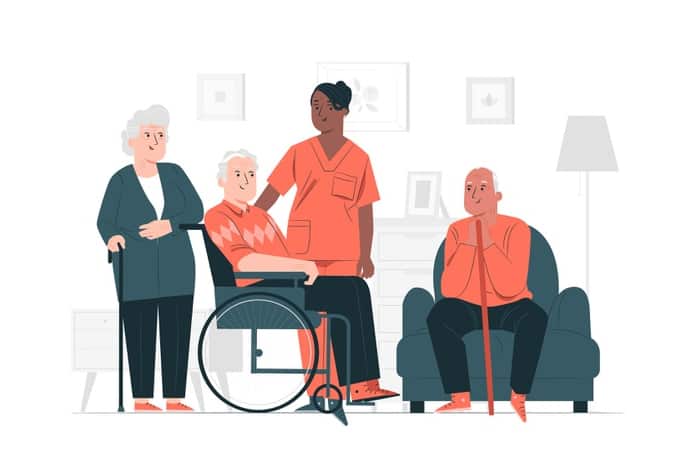“Too often we underestimate the power of a touch, a smile, a kind word, a listening ear, an honest compliment, or the smallest act of caring, all of which have the potential to turn a life around.” – Leo Buscaglia
Old age is a sensitive phase, and the elderly need care and comfort to lead a healthy life free from anxiety. Lack of proper awareness regarding the changing behavioral patterns and their modified needs at home could lead to emotional abuse.
Eldercare is specialized care that is tailored to meet the requirements of senior citizens. It is an umbrella term that includes everything from general living assistance to adult daycare, home care, and even hospice care.
When is Elder Care Necessary?
Elder care is not something all senior citizens mandatorily need. Health permitting, some of them prefer to live independently in their later years. However, it becomes a requisite when they begin to experience difficulty with ‘Activities of Daily Living’ (ADLs). These refer to the daily routine one does, which may include bathing, dressing, cooking, cleaning, taking medications, etc., that directly impacts the quality of life and their general safety.
The gradual decline in health, that manifests in the form of senility, failing eyesight, or advanced arthritis, often induces the need for elder respite care, as it may indicate a waning ability to independently handle daily activities.
Indicators
Physical indicators – With age, comes a lot of chronic health problems that hinder people from performing daily activities. The body becomes more fragile and susceptible to new illnesses. Disease-related physical problems may be easier to spot, however, one needs to pay equal attention to the slow deterioration of various functions of the body, as they tend to manifest more subtly.
Cognitive indicators – At the very least, mild cognitive problems can be expected as old age sets in. In some cases, they might heavily impact life and compromise the safety of the individual. This makes it harder for them to live independently and would warrant a suitable elder care facility. These problems may include memory issues, difficulty with language, difficulty making routine judgments, and difficulty with handling emotions.
Emotional indicators – As people grow older they become fragile both physically and emotionally. Feelings of neglect, losing a spouse, or the general inability to successfully go through routine activities like before, can have a huge impact on their mental health. These indicators must be closely monitored and the right action and care must be administered.
Family members are usually the first to recognize the need for eldercare. If your loved one is approaching old age, it would be wise to include them in the family health insurance so that you could be prepared for the additional care that would be required. The kind of elder care that is right for your loved one, is very dependent upon the health conditions they suffer from and their severity. Elder care should become a discussion at home as soon as changes are noticed, as delaying assisted care could adversely impact their well-being and safety.
The Editorial Team at Healthcare Business Today is made up of skilled healthcare writers and experts, led by our managing editor, Daniel Casciato, who has over 25 years of experience in healthcare writing. Since 1998, we have produced compelling and informative content for numerous publications, establishing ourselves as a trusted resource for health and wellness information. We offer readers access to fresh health, medicine, science, and technology developments and the latest in patient news, emphasizing how these developments affect our lives.








